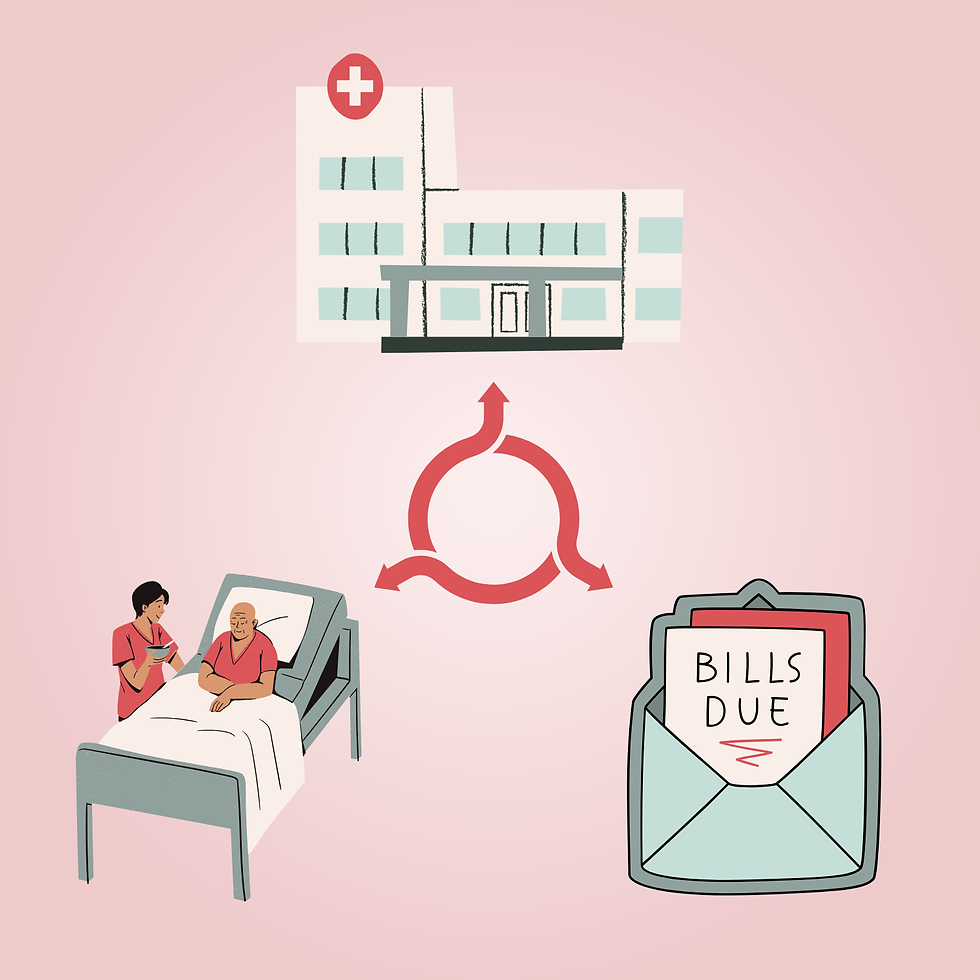Access to Emergency Contraceptives in Light of the Turnover of Roe V. Wade
- Caroline Metz
- Apr 4, 2023
- 2 min read
Following the overturn of Roe V. Wade, CVS stores across the United States placed a purchasing cap on “Morning After Pills,” more commonly known as “Plan B,” in hopes of ensuring equitable access to all who wanted to purchase. Though no purchasing cap was placed on Plan B in Walgreens stores, representatives claimed that they may enforce a limit if they see an influx of purchasing. Many fear that with the overturn of Roe V. Wade, bulk-purchasing of Plan B could cause shortages, greatly impacting those who need it most.

Without an ID or prescription, emergency contraceptive pills can be purchased over-the-counter, whereas abortion medications require a prescription and strict pill regimen. Commonly used after unprotected sex, Plan B and similar contraceptives can prevent the release of an egg from the ovary. Plan B is not accessible to all, however. With an average price of around $50, these tiny pills could be too expensive for those who need it, placing it out of reach for some consumers.
However, in the beginning of 2022, CVS decided to reverse their purchasing cap on Plan B as sales returned to normal levels. Yet with the overturn of Roe V. Wade, we can’t help but wonder what the future looks like for access to contraceptives like Plan B. According to the Plan B label, the contraceptive claims to “prevent a fertilized egg from attaching to the womb.” Though the statement is not backed by scientific evidence, the statement was approved to be included on the box to get Plan B passed as an over-the-counter contraceptive. Some anti-abortionists argue that interference with the egg in any way is still considered abortion. This has sparked confusion over the language on the packaging and could cause further controversy over whether contraceptives like Plan B will still be made available.
The US Food and Drug Administration states that Plan B does not prevent the fertilized egg from implanting in the womb and therefore does not cause abortion. In addition, if a fertilized egg is implanted in the womb before Plan B is taken, the contraceptive will not be effective. Therefore, Plan B has decided to update its packing to reflect more accurate information regarding the drug.
Though knowledge of Plan B is widespread - around 93% of adults have heard of Plan B - 73% of US adults are not entirely sure of how the pill works. 32% are unsure if Plan B is legal in their state, and 5% incorrectly believe that Plan B is illegal in their state.
Some states, including Idaho and Louisiana, have begun discussing future restrictions for emergency contraceptives and possibly IUDs in light of the overturn of Roe v. Wade. While no states have officially banned Plan B, there is uncertainty and confusion regarding the future of contraceptives. Missouri’s “trigger law” would impact Plan B access but would not ban emergency contraceptives. Therefore, even if Plan B and other contraceptives are still made available, their access might be limited.
Edited by: Heiley Tai
Graphic Designed by: Makayla Gorski
References


Comments